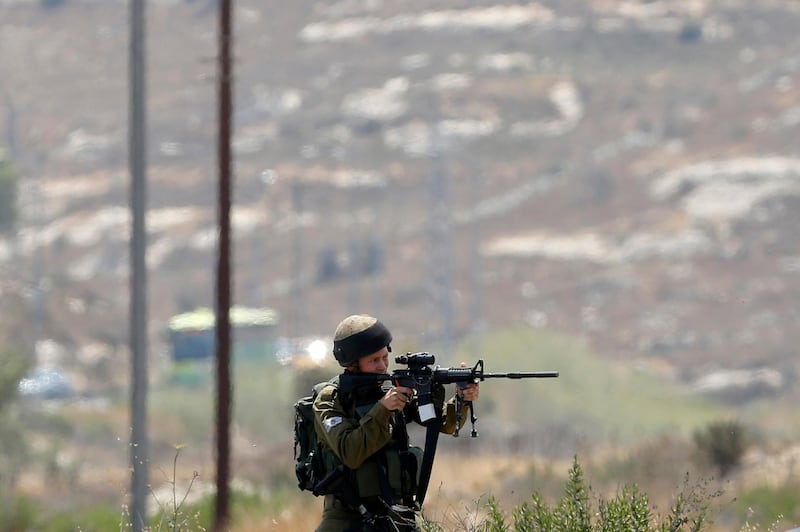A top aide to Donald Trump arrived in Israel on Monday in a bid to ease tensions over new security measures at the Haram Al Sharif in Jerusalem.
Jason Greenblatt's visit comes after more than a week of tensions over the mosque compound, which is central to the Israeli-Palestinian conflict.
Mr Greenblatt met prime minister Benjamin Netanyahu along with US envoy to Israel David Friedman, an Israeli official said.
Israel installed metal detectors at entrances to the site, which includes Al Aqsa mosque, the third holiest site in Islam, and the Dome of the Rock, following an attack on July 14 that killed two policemen.
Palestinians view the move as Israel asserting further control over the site. They have refused to enter the compound in protest and have prayed in the streets outside.
Israeli authorities say the metal detectors are needed because the July 14 attackers smuggled guns into the site and emerged from it to shoot the officers.
Clashes have broken out during protests over the measures, leaving five Palestinians dead.
Three Israelis were also killed when a Palestinian snuck into a house in a settlement in the occupied West Bank and stabbed them.
On Sunday night, two Jordanians were shot dead at the Israeli embassy in Amman after alleged attack on a security guard. The motives for the alleged attack were unclear.
In the latest incident, police said a Palestinian stabbed an Israeli in the city of Petah Tikva, near Tel Aviv, on Monday morning before being arrested. The victim's wounds were not thought to be life threatening.
Israeli tank fire also struck a Hamas post in Gaza after a rocket from the territory landed in an open area in Israel.
Besides the US efforts, the UN Security Council will hold closed-door talks on Monday about the spiralling violence after Egypt, France and Sweden sought a meeting to "urgently discuss how calls for de-escalation in Jerusalem can be supported".
François Delattre, France's permanent representative to the United Nations, said ahead of the meeting that the council was keen to get a "convergence of views.. on the different messages that each of us can pass on to the parties in the region.
Israeli officials have said they may be open to changing the measures at the holy site. Cameras have been installed at entrances in a possible indication of an alternative to the metal detectors.
On Monday, Jordan's King Abdullah spoke with Israel's prime minister Benjamin Netanyahu and stressed the need for a quick resolution to the crisis at Haram Al Sharif, including a return to Al Aqsa mosque that was fully open.
Arab League chief Ahmed Abul Gheit on Sunday accused Israel of "playing with fire" with the new security measures, and Turkish President Recep Tayyip Erdogan called them an insult to the Muslim world.
Friday's main weekly Muslim prayers - which normally draw thousands to Al Aqsa - brought the situation to a boil.
In anticipation of protests, Israel barred men under 50 from entering the Old City for prayers.
Clashes broke out between Israeli security forces and Palestinians around the Old City, in other parts of annexed east Jerusalem and in the occupied West Bank, killing three Palestinians.
They continued on Saturday, leaving two more Palestinians dead, including one when a petrol bomb exploded prematurely. More scuffles broke out around Jerusalem's Old City on Sunday night.
Friday evening also saw a Palestinian break into a home in a Jewish settlement in the West Bank and stab four Israelis, killing three.
The Israeli army said the 19-year-old Palestinian had spoken in a Facebook post of the holy site and of dying as a martyr.
The holy site in Jerusalem, known to Jews as the Temple Mount, has served as a rallying cry for Palestinians.
In 2000, then Israeli opposition leader Ariel Sharon's visit to the compound helped ignite the second Palestinian intifada, which lasted more than four years.
It is in east Jerusalem, seized by Israel in the 1967 Six-Day War and later annexed in a move never recognised by the international community.





